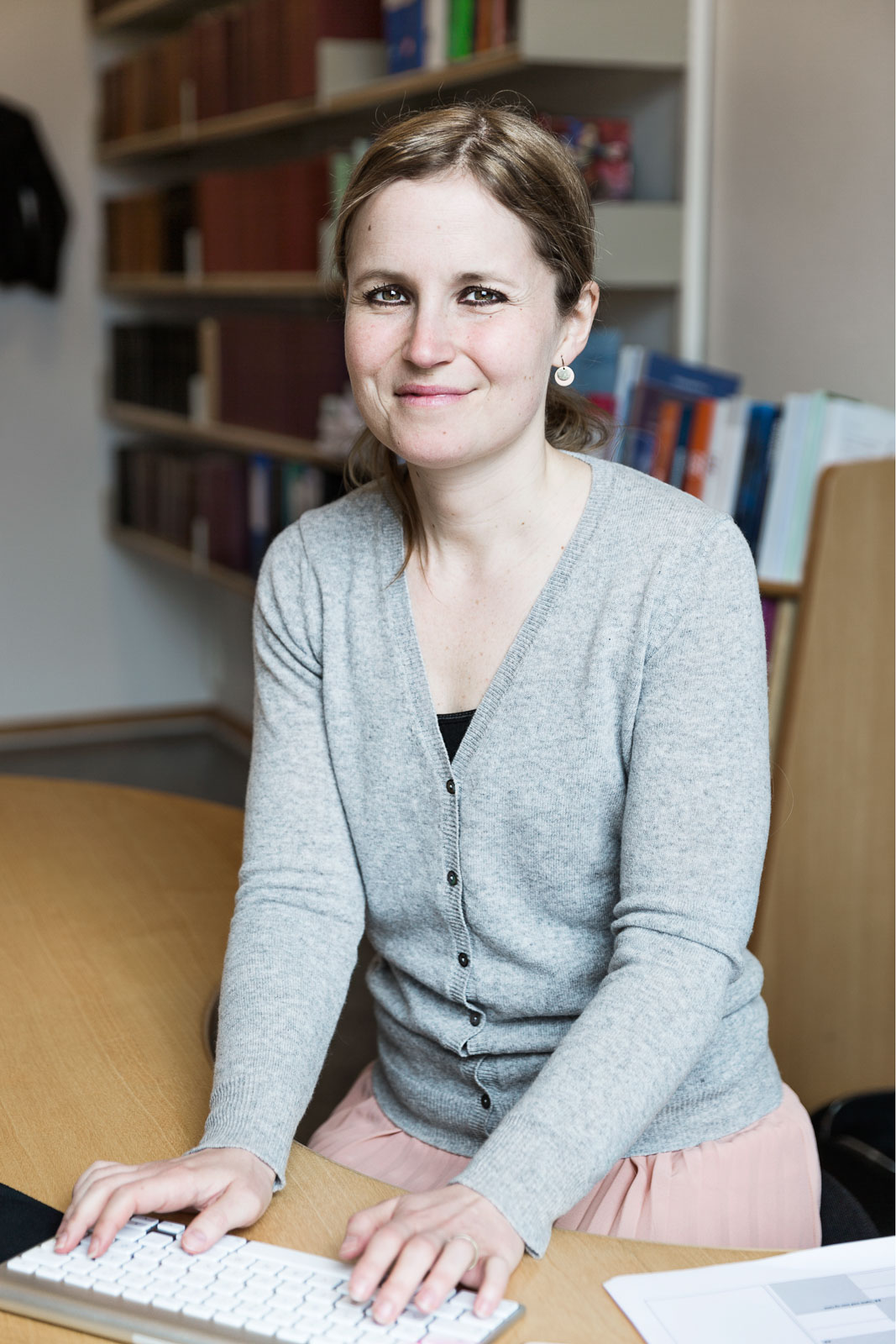THEME: Teacher test yourself!
One of the lecturers who accepted the advice offered by the Centre for Teaching and Learning and actively tested their methods and tools is Assistant Professor Caroline Adolphsen from the Department of Law. She received a bit of a shock the first time she used online polling during a lesson.


"A third of the class hadn’t understood the material I had just taught," says Caroline Adolphsen. Her body language clearly shows that at that time she had wondered how so many had failed to understand what she had just explained.
Poling is now a natural part of Caroline Adolphsen’s teaching, because it shows her unambiguously whether the students have understood the most important elements of the teaching.
Has altered her teaching
For Caroline Adolphsen the new methods led to a different way of teaching, so that she today spends more time on basic concepts and understanding systems and less time on details, cases and examples.
"At the exams we test whether the students have understood the basic concepts. Those who fail do so because they haven’t understood the basic concepts. They don’t fail because there are details they haven’t understood," she says.
She is not so worried about the talented students not doing well, even though they are the ones who benefit from the many cases and the examples of various details.
"They learn no matter what. As we have a mass university system in Denmark, we must also direct teaching towards the intermediate group They’re also the ones who benefit most from the new tools," says Caroline Adolphsen.
Uncertainty is okay
Caroline Adolphsen is not afraid to bring her own experiences as a lecturer into play.
"It’s okay for the students to see my own uncertainty when a lesson doesn’t cover everything I intended, even though I’d made a conscious effort to plan everything as pedagogically as possible," she says.
Unexpected side effect
The new teaching methods also resulted in an added bonus that Caroline Adolphsen had not anticipated when she introduced the new tools in the middle of a semester in 2013.
"Suddenly I had students beginning to say something in class who had never done so before," she says.
The reason was simple. Previously, none of the students knew whether they were the only one in the auditorium who was in doubt. But with polling it suddenly becomes clear that thirty or forty per cent of the students have been left behind. This means that students who are uncertain about their level of knowledge now dare to ask questions.
"This is direct feedback on my teaching. It’s not about me. I’m there so they can learn what they have to, not because they must listen to what I know," she says.
Students improve
Caroline Adolphsen is less interested in whether the change in her teaching activities results in better marks for the students. For her it is more about the new law graduates understanding the laws that they must administer when they find work in various government agencies and institutions.
"I work with family and child cases. It is extremely important that the students understand the applicable legislation. This is why we test them in their legal method and how they approach an area."
For the students, marks are important. As she well knows. But the system with anonymous examinations means that she does not know what marks the individual class receives. However, she is nonetheless confident that the students get better marks now. Both because she can see this in the tests during teaching, and because the students themselves tell her about their marks.
"I believe the good marks are a result of being more open about making mistakes in my class. We also talk about poor marks and the difficult material, which provides the opportunity to learn it," she says.

